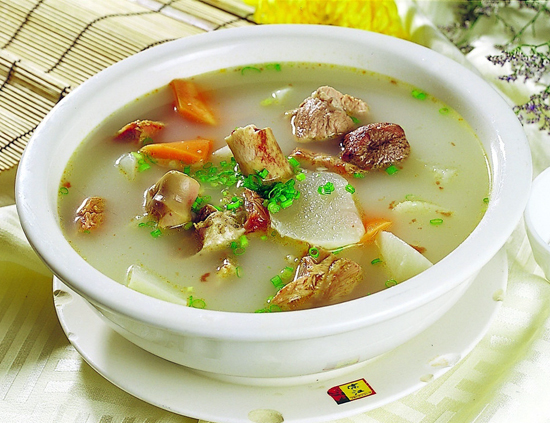Yangqi ascends in spring. The liver prefers smooth regulation of qi and blood but is averse to depression. Therefore, it is suitable for people to eat pungent, sweet and yang-ascending food to conform to the hepatic regulation of qi and blood such as green Chinese onion, coriander, jujube and peanut. On the other hand, sour flavor acts on the liver and is astringent in nature, which is not beneficial to the generation and ascending of yangqi as well as the hepatic regulation of qi and blood. Accordingly, people should eat less sour-flavored foods. Besides, the liver functions vigorously in spring. In this case, the hyperactive liver easily subjugates and restricts the spleen, or reversely restricts the lung.
Thus, splenogastric and pulmonary diseases are liable to occur or worsen in spring. Therefore, health preservation or rehabilitation with the diet and drugs should take these climatic factors into consideration. Dietetically , "less sour-flavored foods and more sweet-flavored foods" are followed to nourish the spleen qi. People may select some sweet-flavored and neutral-natured foods to strengthen the spleen, and prevent the hyperactive liver from restricting the spleen and stomach, such as jujube, honey, lotus seed, Chinese yam and coix seed. Learn more information, please read Relationship Between Lung and Liver.

People with poor digestive function of the stomach and intestine may eat more radishes to regulate qi, resolve phlegm and regulate the stomach; the decoction of Jupi (Pericarpium Citri Reticulatae) can resolve phlegm, quench thirst, regulate qi and the stomach; drinking the tea infused with Maogen (Radix Rubi Parvifolii) and Lugen (Rhizoma Phragmitis) or the decoction of peeled Yali pear and water chestnut can clear away heat from the lung, prevent disease of respiratory and enterogastric tracts like common cold. Learn more information, please read Relationship Between Lung and Spleen.







